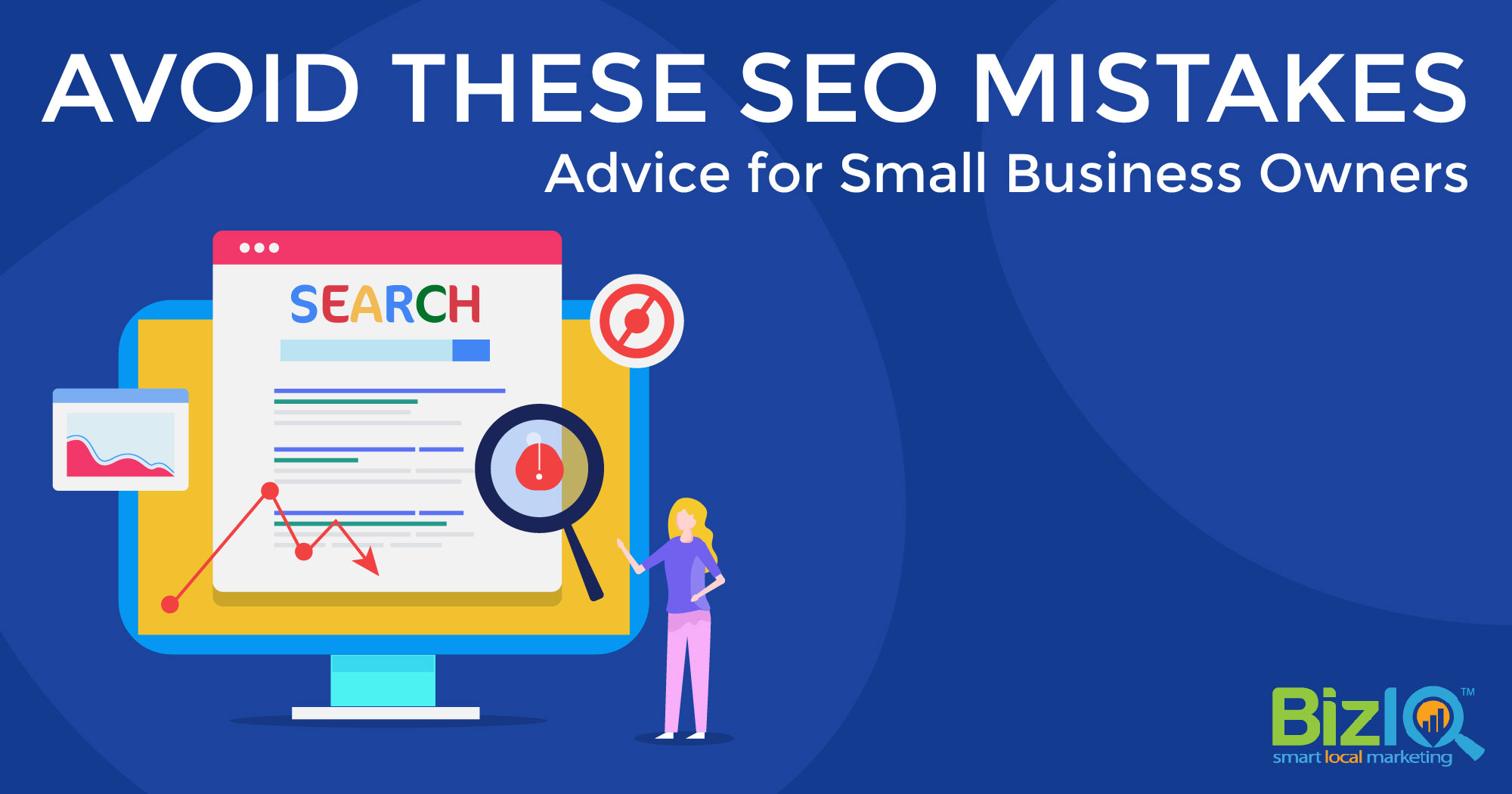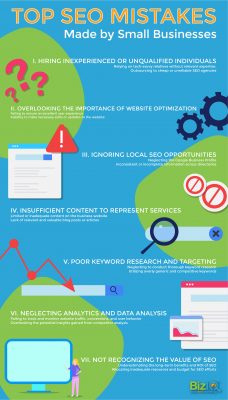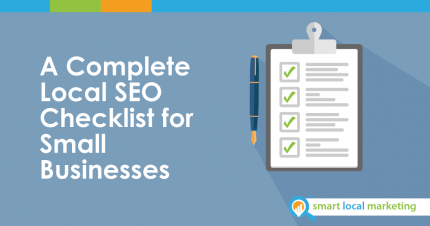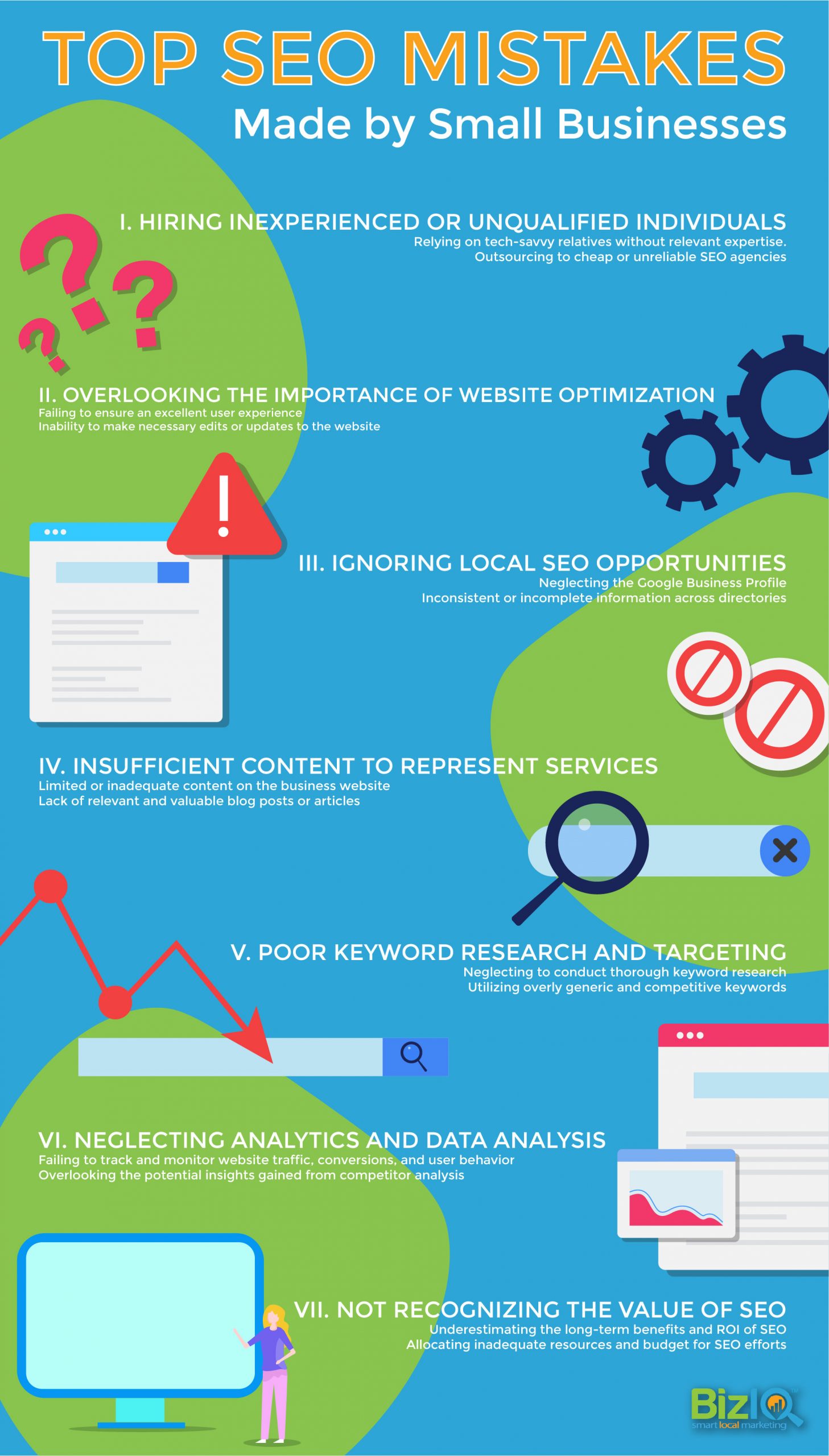In today’s digital age, having strong online visibility is crucial for small businesses to compete and thrive. One of the most effective ways to achieve this is through Search Engine Optimization (SEO). With millions of websites vying for attention on search engines like Google, SEO is fundamental in ensuring potential customers can find your business. However, many small business owners are unaware of its significance and may be too quick to hire their tech-savvy nephew (not always a bad idea!). Here’s a complete list of common mistakes small business owners make when implementing SEO strategies.
1. Hiring Inexperienced or Unqualified Individuals
Relying on tech-savvy relatives without relevant expertise
When it comes to SEO, it’s important to understand that technical knowledge alone is not enough. While your tech-savvy relatives might be great at helping with computer issues, SEO requires a deeper understanding of search engine algorithms, content optimization techniques, and keyword research. Relying solely on their expertise without relevant experience in SEO can lead to ineffective strategies and wasted time and resources.
Outsourcing to cheap or unreliable SEO agencies
Outsourcing your SEO needs to a cheap or unreliable agency can be risky. These agencies often employ black-hat SEO tactics, such as keyword stuffing or buying backlinks, which can result in penalties from search engines. Additionally, they may not have the necessary experience or resources to optimize your website and improve your search engine rankings. Prioritizing cost over the quality of service can ultimately harm your website’s visibility and online reputation.
Related: How much should you spend on Local SEO for your small business?
Overemphasis on cost instead of the quality of service
While cost is important for small business owners, it should not be the sole determining factor when hiring an SEO professional or agency. Quality of service should be prioritized over cost, as investing in high-quality SEO can provide long-term benefits for your business. Opting for cheap services may lead to low-quality work, minimal results, and potential damage to your website’s search engine rankings. Investing in a reputable, experienced SEO professional who can deliver tangible results is better than cutting corners and risking negative consequences.
Have you hired out SEO to someone who may not be qualified for the position? Our SEO experts will conduct a FREE website audit to see if they’ve made any critical errors. Schedule your SEO assessment today.
2. Overlooking the Importance of Website Optimization
Website optimization is crucial in driving organic traffic to your small business website and improving your online visibility. However, many small business owners tend to overlook this aspect, which can hinder their chances of success in the digital landscape. Here are three common SEO mistakes related to website optimization that you should avoid:
Neglecting on-page SEO elements, including meta tags and headers
On-page SEO refers to optimizing the elements on your website pages to improve search engine rankings. One of the most common mistakes small business owners make when using SEO is neglecting crucial on-page SEO elements such as meta tags and headers. These elements provide search engines valuable information about your web page’s content and relevancy.
Meta tags, including the meta title and meta description, are HTML tags that describe the topic and purpose of a webpage. Optimizing them with relevant keywords and compelling descriptions can significantly impact your website’s click-through rates on search engine result pages (SERPs).
Headers, on the other hand, use HTML tags such as H1, H2, etc., to structure the content on your website. These headers provide a hierarchical structure to your content and help search engines understand the main topics and subtopics covered on your pages. Neglecting to optimize headers can lead to poor user experience and reduced visibility on search engines.
Failing to ensure website navigation and user experience are optimized
Website navigation and user experience are vital in keeping visitors engaged and encouraging them to explore more of your content. Unfortunately, some small business owners fail to prioritize these aspects of optimization, making it difficult for users to navigate their websites easily.
A poorly structured navigation menu can confuse both visitors and search engines. Potential customers may struggle to find the needed information, leading to frustration and high bounce rates. From an SEO perspective, search engines rely on clear navigation to crawl and index your website efficiently. If they encounter difficulties while crawling your site, it can negatively impact your search engine rankings.
Optimizing the overall user experience is crucial for converting visitors into paying customers. Slow page loading times, unresponsive design, or irrelevant content can deter users from engaging with your site. Focusing on responsive design, fast loading times, and creating content that addresses users’ needs will significantly enhance the user experience and contribute to better search engine visibility.
Inability to make necessary edits or updates to the website due to lack of technical knowledge
Maintaining a website involves making regular updates and edits to keep it fresh and relevant. However, some small business owners find themselves unable to make these necessary changes due to a lack of technical knowledge or dependence on web developers.
When small business owners are unable to independently update their websites, it leads to delays in implementing SEO strategies and addressing issues that arise over time. These delays can hinder your website’s performance and prevent the timely implementation of essential optimizations.
To avoid this mistake, it is beneficial for small business owners to gain basic technical knowledge or work closely with web developers who can provide ongoing assistance. Ensuring you can make necessary edits and updates promptly will optimize your website for SEO purposes and keep your content fresh and valuable for visitors.
Short on time? Download our SEO Mistakes Infographic and share it with someone who you think would find it helpful.
3. Ignoring Local SEO Opportunities
Local SEO is an essential aspect of any small business’s online strategy. Neglecting it can significantly hinder your chances of attracting local customers and may result in your business getting lost amid the fierce competition. Here are some specific mistakes that small business owners should avoid when it comes to local SEO:
Neglecting the Google Business Profile
One of the most common and damaging mistakes small business owners make is disregarding their Google Business Profile. Your Google Business Profile is a powerful tool that can significantly boost your online visibility in local searches. It lets you control how your business appears in Google Maps and local search results.
To avoid this mistake:
- Make sure you claim and verify your Google Business Profile.
- Provide accurate and up-to-date information about your business, including your address, phone number, website, and business hours.
- Regularly update your profile by adding engaging photos, responding to customer reviews, and frequently posting updates or promotions.
Make sure you optimize your Google Business Profile. By neglecting it, you risk missing out on valuable exposure to potential customers in your local area.
Inconsistent or incomplete business information across online directories
Another common mistake that can harm your local SEO efforts is having inconsistent or incomplete business information across online directories. Online directories play a crucial role in local search rankings, and accurate and consistent business information helps search engines verify your business’s legitimacy and relevance.
To prevent this mistake, ensure that your business name, address, and phone number (NAP) are consistent across all online directories, including popular ones like Yelp, TripAdvisor, Yellow Pages, and Bing Places. Inaccurate or inconsistent NAP information confuses search engines and negatively impacts your local search rankings. Regularly audit your business listings to identify any discrepancies and take timely action to correct them.
Failing to take advantage of location-based keywords and geo-targeting strategies
Location-based keywords and geo-targeting strategies are powerful tools for attracting local customers. However, many small business owners fail to optimize their website and online content with these tactics, missing out on potential organic traffic and local search ranking improvements.
To avoid this mistake:
- Conduct keyword research with a local focus.
- Identify popular keywords and phrases that potential customers in your area will likely search for.
- Incorporate these location-based keywords naturally into your website’s content, including page titles, headings, meta descriptions, and body text.
Furthermore, consider implementing geo-targeting strategies such as creating specific landing pages for each target location or customizing the content based on the visitor’s location. This personalized approach helps improve the overall user experience and increases the chances of converting local visitors into customers.
Ready to sharpen your skills? Check out our complete local SEO checklist for small businesses.
4. Insufficient Content to Represent Services
One common mistake small business owners make in their SEO strategy is insufficient content to properly represent their services. This can negatively impact their website’s visibility and rankings on search engine results pages. Providing enough relevant and valuable content on your website and using multimedia content like videos and infographics is important to avoid this mistake.
Limited or inadequate content on the business website
Having limited or inadequate content on your business website can hinder your SEO efforts. When search engines crawl your website, they look for informative and useful content to determine its relevance to users’ search queries. If your website lacks sufficient content, it may be considered less relevant and less likely to appear in search engine results.
Ensure your website includes comprehensive and detailed information about your products or services to avoid this mistake. Provide thorough descriptions, clear explanations, and any other relevant details that can help potential customers understand what you offer. This will improve your website’s visibility and provide a positive user experience.
Lack of relevant and valuable blog posts or articles
Another mistake small business owners make is not utilizing blog posts or articles to enhance their SEO efforts. Regularly publishing blog posts or articles relevant to your industry and target audience can significantly improve your website’s visibility and rankings.
You can establish yourself as an authority in your field by providing valuable and informative content through blog posts or articles. This will attract more traffic to your website and increase the likelihood of other websites linking back to your content, an important factor that search engines consider when ranking websites.
To avoid this mistake, consider starting a blog on your website and regularly updating it with high-quality content. Research popular topics in your industry and target keywords related to your services to optimize your blog posts for search engines. Providing valuable insights, tips, and industry updates will attract potential customers and improve your website’s search engine rankings. Learn how to create content that drives results for small businesses.
Failing to leverage multimedia content such as videos or infographics
In today’s digital age, multimedia content like videos and infographics has become increasingly popular and effective in engaging users. Failing to leverage these types of content can hinder your SEO efforts and limit your website’s reach.
Videos are a powerful tool for engaging users and conveying information effectively. They can also increase the time users spend on your website, which is another factor that search engines consider when ranking websites. Infographics, on the other hand, provide a visually appealing and digestible way to present data and information.
To avoid this mistake, create and include multimedia content on your website. For example, consider producing videos that showcase your products or services, provide tutorials, or answer frequently asked questions. Infographics can be created to present statistics or complex information visually appealingly. Incorporating these types of content into your website can improve user engagement, attract more traffic, and boost your SEO rankings.
5. Poor Keyword Research and Targeting
Neglecting to conduct thorough keyword research
One common mistake small business owners make is neglecting to conduct thorough keyword research. Keyword research is crucial as it helps businesses understand what customers are searching for and allows them to optimize their websites accordingly. Small business owners risk losing potential traffic and customers by ignoring this step. Thorough keyword research involves using various tools and platforms to identify relevant and high-volume keywords related to their industry. It is important to note that without this research, businesses may target irrelevant or low-traffic keywords, resulting in poor SEO performance.
Utilizing overly generic and competitive keywords
Another SEO mistake small business owners make is choosing overly generic and competitive keywords. While targeting broad keywords related to their industry may seem logical, this approach can often be counterproductive. Overly generic keywords tend to have fierce competition, making it difficult for small businesses to rank higher in search engine results. Instead, targeting long-tail keywords that are more specific and have a higher chance of attracting targeted traffic is advisable. This strategy allows small businesses to compete in a niche market and attract users who are more likely to convert into customers.
Ineffective implementation of targeted keywords in the content
Even if small business owners conduct proper keyword research and select relevant and specific keywords, ineffective implementation of these targeted keywords in their content can hinder SEO success. The content on their website should be optimized with strategically placed keywords. This means incorporating the selected keywords naturally and organically throughout their website’s content, including headlines, meta descriptions, and within the body of the text. Failing to do so reduces the chances of search engines understanding the relevance of their content to users’ search queries. Consistent and effective keyword implementation is vital to improve organic rankings and increase visibility in search engine results.
6. Neglecting Analytics and Data Analysis
One of the most critical mistakes that small business owners make in managing their SEO efforts is neglecting analytics and data analysis. By failing to track and monitor website traffic, conversions, and user behavior, businesses miss out on valuable insights that can significantly impact their SEO success. Here are three key points to keep in mind to avoid this mistake:
Failing to track and monitor website traffic, conversions, and user behavior
- Importance of tracking: By not implementing proper tracking tools such as Google Analytics, small business owners are left in the dark about the effectiveness of their SEO efforts. Tracking website traffic allows you to understand where your visitors are coming from, which keywords drive the most traffic, and how long users stay on your site.
- Conversions: Neglecting to track conversions means you won’t know which marketing campaigns or keywords are actually driving sales or leads. By setting up conversion tracking, you can identify the channels and strategies that are working best for your business.
- User behavior: Understanding how users interact with your website is crucial for improving its performance. By analyzing user behavior, you can identify areas where visitors drop off, pages that need improvement, and opportunities for optimizing the user experience.
Overlooking the potential insights gained from competitor analysis
- Competitive research: Examining what your competitors are doing in regard to SEO can provide you with valuable insights. By analyzing their strategies, you can learn what is working well in your industry and uncover opportunities for improvement.
- Keyword research: Monitoring the keywords your competitors are targeting can help you identify gaps in your own SEO strategy. Discovering untapped keywords or finding new variations can give you a competitive advantage in driving organic traffic to your site.
- Backlink analysis: Investigating your competitor’s backlink profile is an excellent way to identify new potential sources for high-quality backlinks. Evaluating their link-building strategies can help you develop an effective plan to boost your own website’s authority.
Inability to adapt SEO strategies based on data-driven insights
- Continual improvement: SEO is an ongoing process, and it is crucial to adapt your strategies based on the insights gained from data analysis. By regularly reviewing and assessing your website analytics, you can identify areas for improvement and make informed decisions to optimize your SEO efforts.
- Identifying trends: Data analysis allows you to identify trends in user behavior and industry-related changes. By staying updated on the latest trends, you can adjust your SEO strategies to align with current best practices and capture new opportunities.
3. Testing and optimization: Data-driven insights allow you to test different strategies, such as A/B testing different landing pages or experimenting with different meta tags, to determine what works best for your website. Utilizing data analysis can lead to optimized SEO efforts and improved overall performance.
7. Not Recognizing the Value of SEO
SEO is crucial for small businesses as it helps increase their online visibility, attract organic traffic, and ultimately drive conversions. However, many small business owners underestimate the value of SEO and fail to realize its potential benefits. In this section, we will delve deeper into why small business owners often neglect the significance of SEO and the mistakes they make in this regard.
Underestimating the long-term benefits and ROI of SEO
One common mistake small business owners make is underestimating the long-term benefits and return on investment (ROI) that SEO can provide. Some may argue that investing in paid advertising or other marketing strategies produces immediate results, but SEO is a continuously evolving practice that builds value over time. By neglecting SEO, businesses miss out on long-term organic growth opportunities and lose the chance to establish a strong online presence.
Small business owners must understand that SEO is not a quick fix; it requires patience and consistent effort. With proper optimization, a website can rank higher in search engine results pages (SERPs), attract more organic traffic, and gain increased visibility on the internet. This increased visibility can result in higher brand exposure, lead generation, and, ultimately, higher sales and revenue. The cumulative effects of sustained SEO efforts can provide significant and ongoing benefits for small businesses.
Allocating inadequate resources and budget for SEO efforts
Another mistake small business owners often make is allocating inadequate resources and budget for their SEO efforts. They may perceive SEO as a low-cost or even free marketing strategy, leading them to prioritize other areas of their business that they believe need more attention.
However, successful SEO requires various resources, including skilled professionals, quality content creation, website optimization, link building, and analytics monitoring. By allocating insufficient resources, businesses hinder their chances of achieving effective SEO results. Investing in SEO is a long-term investment rather than an expense, as it can help businesses attain a competitive edge and sustain growth in the digital landscape.
Viewing SEO as a one-time task rather than an ongoing process
Many small business owners fail to recognize that SEO is not a one-time task but an ongoing process. Optimizing a website for search engines is not a set-it-and-forget-it scenario. Search engines continuously update their algorithms, and competitors are constantly working to improve their online presence, making it essential for businesses to adapt and evolve their SEO strategies accordingly.
SEO requires continuous monitoring, evaluation, and adjustment to stay ahead of the competition. It involves tracking keyword trends, analyzing website performance, improving user experience, and adapting to changes in search engine ranking factors. Neglecting these ongoing efforts can result in losing organic visibility, making it difficult for small businesses to compete effectively in the digital landscape.
Local SEO for Small Businesses
To avoid common SEO mistakes small business owners make, being proactive is key. The abovementioned tips discussed are crucial for improving local SEO, and small business owners can optimize their websites and improve search engine rankings by following them. However, it is essential to acknowledge the complexity of SEO and seek professional guidance or invest in proper SEO training and resources when necessary. Small business owners can pave the way for long-term online success by avoiding these pitfalls.
Finding a local marketing agency that offers competitive local SEO for small business will help you get what you need from an expert point of view. BizIQ offers affordable local SEO solutions for businesses to get you noticed by potential customers and convert interest into sales. Check out our digital marketing case studies to see how we’ve helped businesses just like yours find marketing success.














